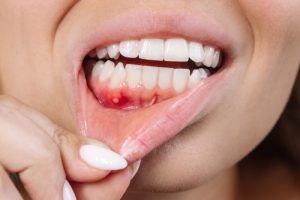Revive Your Smile with Gum Disease Treatment at Our Fort Worth Dental Office

Patients from Fort Worth and nearby areas such as Arlington, Hurst, Mansfield, and Keller rely on our team for professional care, advanced techniques, and compassionate guidance to protect their smiles and overall oral health. If you’re searching for effective gum disease treatment near you, contact our dental office in Fort Worth by calling (817) 361-1999.
Why Fort Worth Patients Choose Dr. Phillips for Gum Care
Patients from Fort Worth and surrounding areas such as Arlington, Hurst, Mansfield, and Keller trust Dr. Brit Phillips for comprehensive gum care. Here’s why:
- Skill in Restorative Dentistry: Dr. Phillips combines general dentistry knowledge with advanced periodontal treatment skills.
- Personalized Treatment Plans: Each patient receives a customized plan tailored to their specific needs.
- Advanced Technology: Our office uses advanced diagnostic tools to detect early signs of gum disease.
- Patient-Focused Care: Comfort, education, and prevention are central to our approach.
Whether you are seeking routine gum maintenance or advanced treatment, Dr. Phillips provides compassionate care designed to restore your oral health.
What is Gum Disease?
Gum disease, also known as periodontal disease, is an infection of the tissues that support your teeth. It typically starts as gingivitis, which causes redness, swelling, and bleeding of the gums. If left untreated, it can progress to periodontitis, leading to gum recession, bone loss, and eventually tooth loss.
Early detection is key. At our Fort Worth office, Dr. Phillips can identify gum disease before it becomes severe, allowing for effective treatment that restores gum health and prevents further complications.
Signs of Gum Disease
Recognizing the early signs of gum disease is essential for preventing serious dental problems. Gum disease often develops gradually, and symptoms may be subtle at first. Knowing what to look for can help you seek treatment before the condition progresses.
Red, Swollen, or Tender Gums
Healthy gums are typically pink and firm. Gums that appear red, swollen, or feel tender to the touch may indicate inflammation caused by plaque buildup.
Bleeding While Brushing or Flossing
Gums that bleed easily during daily brushing or flossing are a common early warning sign of gingivitis, the first stage of gum disease.
Persistent Bad Breath
Bacteria trapped along the gum line can cause chronic bad breath or a bad taste in your mouth. This symptom should not be ignored, as it can indicate infection.
Gum Recession
Receding gums expose more of the tooth and sometimes even the root. This not only affects the appearance of your smile but also makes teeth more sensitive and vulnerable to decay.
Loose or Shifting Teeth
As gum disease progresses, the supporting bone can deteriorate, causing teeth to loosen or shift. This is a serious sign that immediate professional care is needed.
Pus Between Teeth and Gums
In advanced stages, pus may appear between the teeth and gums, signaling infection that requires prompt treatment by a restorative dentist near Fort Worth.
If you notice any of these signs, schedule an evaluation with Dr. Phillips by calling (817) 361-1999 to take the first step toward effective gum disease treatment and protecting your long-term oral health.
Gum Disease Treatment Options at Our Fort Worth Office
Early-Stage Gum Disease: Root Planing and Scaling
When gum disease is caught early, it can often be treated through non-surgical procedures. Dr. Phillips performs a series of periodontal appointments that involve deep cleaning techniques known as scaling and root planing.
- Scaling removes plaque and tartar from the tooth surface and below the gum line.
- Root planing smooths the tooth roots, helping gums reattach and heal.
These treatments reduce inflammation, control infection, and help prevent the progression of gum disease.
Advanced Gum Disease: Periodontal Surgery and Bone Augmentation
In advanced stages of periodontal disease, Dr. Phillips may recommend a consultation with a qualified periodontist. Surgical procedures can restore gum tissue, reduce pocket depth, and even attempt to create new bone through bone grafting or augmentation techniques.
- Soft tissue grafts can cover exposed roots and improve gum appearance.
- Bone grafting stimulates new bone growth to strengthen teeth support.
- Pocket reduction surgery removes bacteria and smooths damaged bone to prevent further deterioration.
These restorative techniques help Fort Worth patients regain oral health and maintain long-term dental stability.
Supporting Oral Health at Home

- Brushing at least twice a day with fluoride toothpaste
- Flossing daily to remove plaque between teeth
- Using an antiseptic mouthwash to reduce bacteria
- Scheduling regular dental checkups and professional dental cleanings
Combining professional treatment with a strong home care routine ensures long-lasting gum health.
Frequently Asked Questions
Gingivitis, the earliest stage of gum disease, can often be reversed with professional treatment and improved oral hygiene. For periodontitis, while the damage cannot always be fully reversed, Dr. Phillips can manage and stabilize the condition with treatments like scaling and root planing, and in advanced cases, periodontal surgery.
Patients with a history of gum disease are typically recommended to schedule periodontal checkups every three to four months. These appointments allow Dr. Phillips to monitor healing, remove plaque and tartar buildup, and provide professional guidance to maintain optimal oral health. Even patients without gum disease benefit from regular exams to catch early signs before they become serious.
Most gum disease treatments are performed with local anesthesia to ensure your comfort. During scaling and root planing, you may feel some pressure but should not experience significant pain. After treatment, mild soreness or sensitivity is common for a few days, and Dr. Phillips provides instructions and tips to minimize discomfort while supporting healing.
Restore and Maintain Healthy Gums with Dr. Brit Phillips
Gum disease is a serious dental condition, but with early detection and expert care from Dr. Brit Phillips, patients in Fort Worth, TX, and surrounding areas can restore their gum health and protect their smiles. From early-stage root planing and scaling to advanced surgical treatments, our office provides comprehensive solutions designed for long-term oral health. Don’t wait to address gum concerns, schedule an appointment with our dentist in Fort Worth by calling (817) 361-1999.

